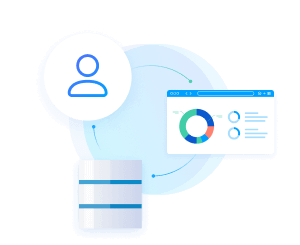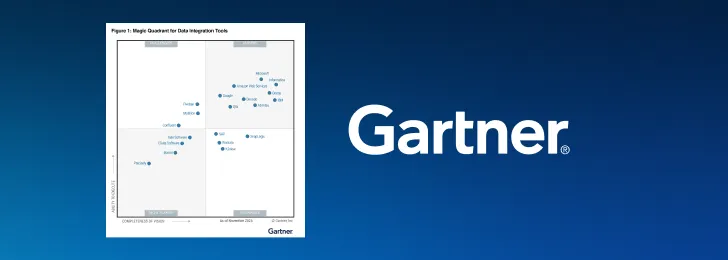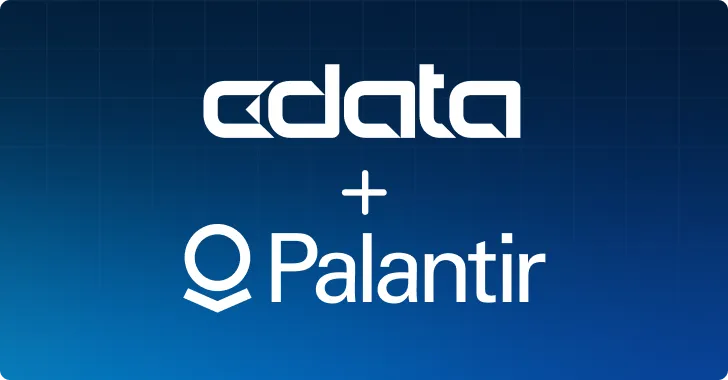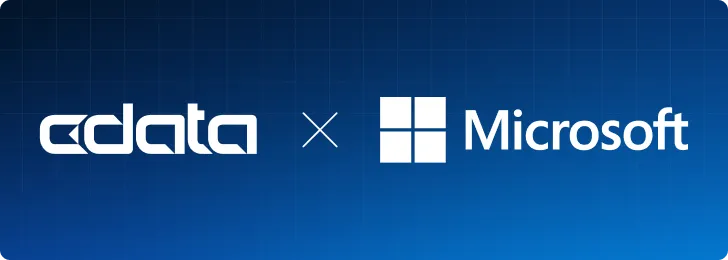
Businesses are sitting on a gold mine of untapped potential – their own data. Data holds the key to smarter decisions, optimized operations, and a thriving business. Today, savvy companies are capitalizing on this potential by creating data products – specialized tools that translate raw data into actionable insights.
Curious how data products can unlock growth for your business? This blog is your one-stop guide. We'll not only demystify the concept and its various forms but also equip you with the knowledge and strategies to build your own, effective data product – one that empowers informed decisions and propels your company forward!
What is a data product?
In its Hype Cycle for Data Management 2023, Gartner defines a data product as a curated and self-contained combination of data, metadata, semantics, and templates, including access and implementation logic certified for tackling specific business scenarios and reuse.
A data product encapsulates data, analytics, and visualizations, addressing specific business challenges. It's not just a dashboard or a report; it's a strategic tool that empowers users to take action and achieve tangible results. Whether it's predicting customer churn, optimizing marketing campaigns, or streamlining operations, a well-crafted data product transforms insight into real-world impact.
Data as a product vs. data product
While both terms revolve around leveraging data for value, "data as a product" and "data product" represent distinct approaches.
Data as a product refers to the process of treating raw data itself as a commodity, selling, or licensing access to it to other businesses. This includes offerings like market research datasets or financial information packages.
Data product is a solution built upon raw data. It entails analyzing, packaging, and presenting data in a format that directly meets a particular business requirement. For instance, a churn prediction tool or customer segmentation dashboard are considered data products, not just raw datasets.
So, the key difference lies in the focus: "Data as a product" prioritizes data as the asset, while "data product" emphasizes the value-added solution built on top of it.
How to build an effective data product
Turning data into a powerful asset requires more than just crunching numbers. Here's a roadmap to building an effective data product that generates impact:
Identify the problem and objective: Start by pinpointing the business challenge you want to address. Is it customer churn, operational inefficiency, or predicting market trends? Clearly define the objective your data product aims to achieve.
Draft and refine your idea: Brainstorm possible solutions based on your identified problem and objective. Conduct initial research, including competitor analysis, to validate your concept and ensure you're addressing a genuine need.
Market research and user validation: Don't build in a vacuum! Conduct market research and gather user feedback through surveys, interviews, and focus groups. Validate the demand for your data product and ensure it aligns with user needs.
Build a solid foundation: Design a robust data architecture and framework. This involves outlining data sources, ensuring data quality, and choosing the right technology stack for analysis and visualization.
Data product design: Focus on usability and user experience. Design an intuitive interface for easy data exploration, clear visualizations, and relevant insights. Remember, effective design empowers users to take action.
Launch and iterate: Don't wait for perfection – launch your data product with a minimum viable product (MVP) approach. Gather user feedback and iterate based on their needs, constantly improving, and refining your product.
Measure success: Define key performance indicators (KPIs) aligned with your objectives. Track metrics like user engagement, adoption rate, and impact on business goals to measure your data product's success.
Foster a culture of data: Don't let your data product exist in a silo. Encourage data-driven decision-making across the organization, integrating your product into existing workflows and fostering a culture of data utilization.
Continuous improvement: Continuously iterate based on user feedback, market changes, and evolving business needs. Remember, effective data products adapt and grow alongside your business.
3 data product use cases: Transforming decision-making and igniting growth
Data products go beyond raw data, transforming it into actionable insights that empower businesses. Here are three of the most impactful use cases:
-
Predicting customer churn rate
Leveraging historical data, a data product predicting customer churn enables businesses to proactively retain valuable customers through targeted incentives, optimize marketing campaigns, and enhance products and services for reduced churn.
-
Tokenizing sensitive customer data
Tokenizing sensitive customer data through a data product enhances security by minimizing breach risks, ensures compliance with regulations such as GDPR, and facilitates secure data sharing for improved insights and collaboration.
-
Delivering complete datasets to CRMs
Optimizing CRM efficiency through a data product that extracts diverse customer information, automatically populates fields, creates a 360-degree customer view, and predicts needs, enhancing sales and marketing efforts.
6 fascinating data product examples
Business landscapes undergo a shift as data products repackage raw data into solutions. Here are some compelling examples:
-
Tableau
As a leading data visualization platform, Tableau offers intuitive drag-and-drop functionality for creating stunning visuals, dashboards, and stories from your data. With its support, you can explore trends, identify patterns, and communicate insights effectively to stakeholders, driving data-driven initiatives across various departments.
-
Power BI
Microsoft's powerful analytics platform combines data visualization, self-service BI, and AI capabilities. It empowers users to explore data, build reports, and even create basic machine learning models, driving data-driven decision-making across the organization.
-
TIBCO Data Virtualization (TDV)
This solution from TIBCO creates a unified layer over diverse data sources, eliminating complex integrations and silos. Businesses gain a single point of access to all their data, enabling faster analysis, reporting, and application development.
-
Matillion
This cloud-native data integration platform streamlines the process of ingesting, transforming, and loading data into your data warehouse. With drag-and-drop functionality and pre-built connectors, Matillion empowers businesses to rapidly build and manage data pipelines, ensuring clean and reliable data for analysis.
-
Collibra
This data governance platform helps organizations manage, govern, and protect their data assets. Collibra ensures data quality, and compliance with regulations, and facilitates data discovery and collaboration, fostering a trustworthy and transparent data ecosystem.
-
Alation
This data catalog platform empowers users to find, understand, and trust their data. Alation automatically scans, indexes, and organizes data sets across diverse sources, providing a searchable knowledge base for data discovery, collaboration, and lineage tracking.
What do all these data products have in common?
The answer: They all place their trust in CData to bolster and enhance their data connectivity. In fact, each of them embeds CData Connectors and Drivers into their data platforms to cater to their diverse connectivity needs.
The CData difference
With CData's extensive library of connectors and drivers, you can expand your data connectivity universe to unprecedented limits. With these exceptional data tools, you can seamlessly link virtually any application, database, or API to your current analytics platforms, irrespective of their native formats. This enables the development of impactful Data Products and applications for your organization.
From Salesforce and Oracle to custom CRM systems and legacy databases, CData Connectors & Drivers bridge the gap, empowering data-driven decision-making across your entire organization.
To get live and on-demand data access to hundreds of SaaS, Big Data, and NoSQL sources with incredible speed and accuracy, sign up for a 30-day free trial to any of our offerings.
As always, our support team is ready to answer any questions. Have you joined the CData Community? Ask questions, get answers, and share your knowledge in CData connectivity tools. Join us!
Try CData Connect AI today
Get a free 30-day trial of CData Connect AI to discover the power of data virtualization for the cloud.





